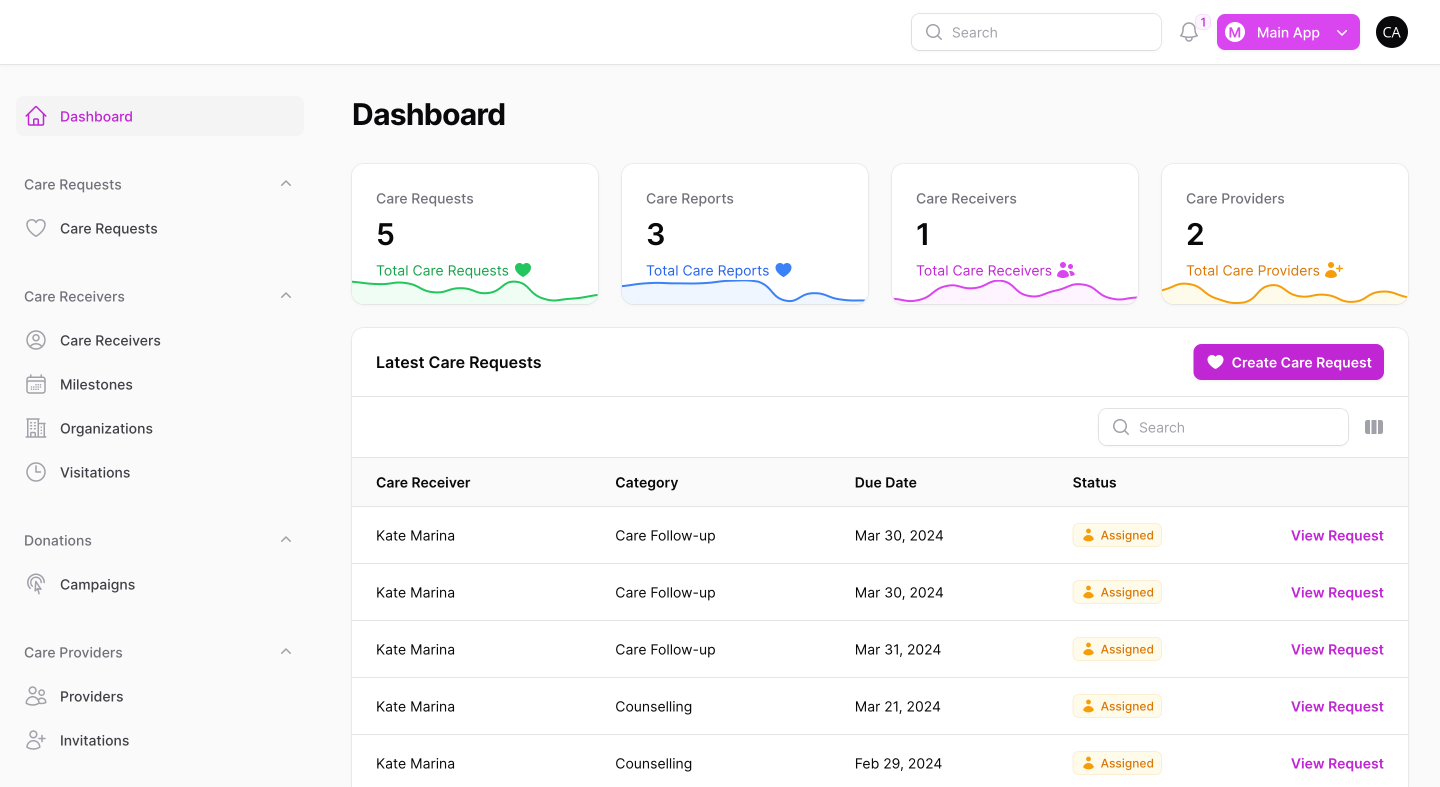Laravel Filament: How to Properly Sort by Pivot Table Columns
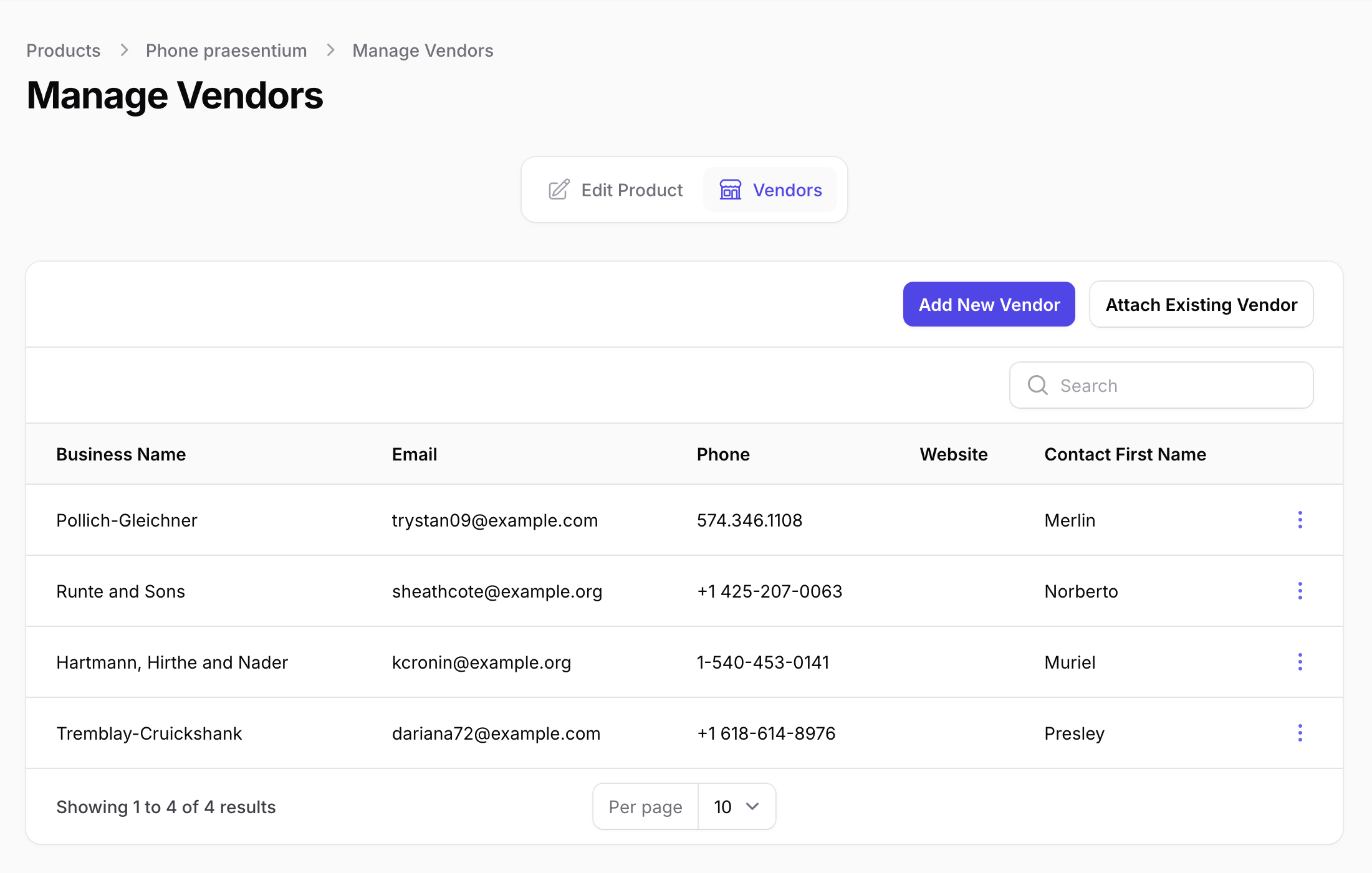
When working with Laravel Filament’s ManageRelatedRecords, you may encounter an error while trying to sort related records:
SQLSTATE[23000]: Integrity constraint violation: 1052 Column 'created_at' in order clause is ambiguous (Connection: mysql, SQL: select product_vendor.product_id as pivot_product_id, product_vendor.vendor_id as pivot_vendor_id, product_vendor.created_at as pivot_created_at, product_vendor.updated_at as pivot_updated_at, product_vendor., vendors. from vendors inner join product_vendor on vendors.id = product_vendor.vendor_id where product_vendor.product_id = 1 and vendors.deleted_at is null order by created_at desc limit 10 offset 0)
This happens when both the main table and the pivot table contain a created_at column, causing MySQL to be unsure which one to use. Let's explore the issue and how to fix it.
The Problem
In our Filament ManageRelatedRecords class, we define a defaultSort for the vendors related to a product:
->defaultSort('created_at', 'desc')However, since the vendors table and the product_vendor pivot table both have a created_at column, MySQL throws an error due to ambiguity.
The Fix
To resolve this, explicitly specify the table name when sorting. If you want to sort by the pivot table’s creation date, update your defaultSort like this:
->defaultSort('product_vendor.created_at', 'desc')This tells MySQL to use the created_at column from the product_vendor pivot table instead of the vendors table.
If you prefer to sort by the vendor’s creation date, use:
->defaultSort('vendors.created_at', 'desc')
Complete Code Example
Here’s how your Filament ManageRelatedRecords class should look with the fix applied:
<?php
namespace App\Filament\Admin\Resources\ProductResource\Pages;
use Filament\Forms;
use Filament\Tables;
use App\Models\Vendor;
use Filament\Forms\Form;
use Filament\Tables\Table;
use Filament\Resources\Pages\ManageRelatedRecords;
class ManageVendors extends ManageRelatedRecords
{
protected static string $resource = ProductResource::class;
protected static string $relationship = 'vendors';
public function table(Table $table): Table
{
return $table
->recordTitleAttribute('first_name')
->columns([
Tables\Columns\TextColumn::make('profile.name')
->label('Business Name')
->copyable()
->searchable(),
Tables\Columns\TextColumn::make('email')
->label(__('Email'))
->copyable()
->searchable(),
PhoneColumn::make('phone')
->copyable()
->countryColumn('phone_country')
->displayFormat(PhoneInputNumberType::INTERNATIONAL),
Tables\Columns\TextColumn::make('profile.website_url')
->label('Website')
->copyable()
->searchable(),
Tables\Columns\TextColumn::make('first_name')
->label('Contact First Name')
->copyable()
->searchable(),
])
->defaultSort('product_vendor.created_at', 'desc') // Fixed sorting
->actions([
Tables\Actions\ActionGroup::make([
Tables\Actions\EditAction::make(),
Tables\Actions\DetachAction::make(),
Tables\Actions\DeleteAction::make(),
])
]);
}
}
Conclusion
If you encounter MySQL’s “Column ‘created_at’ is ambiguous” error while sorting related records in Filament, the fix is simple—explicitly specify the table name in defaultSort(). This ensures MySQL knows exactly which created_at column to use, preventing query errors and making your Filament tables work smoothly.
Related Articles that May Be to Your Interest
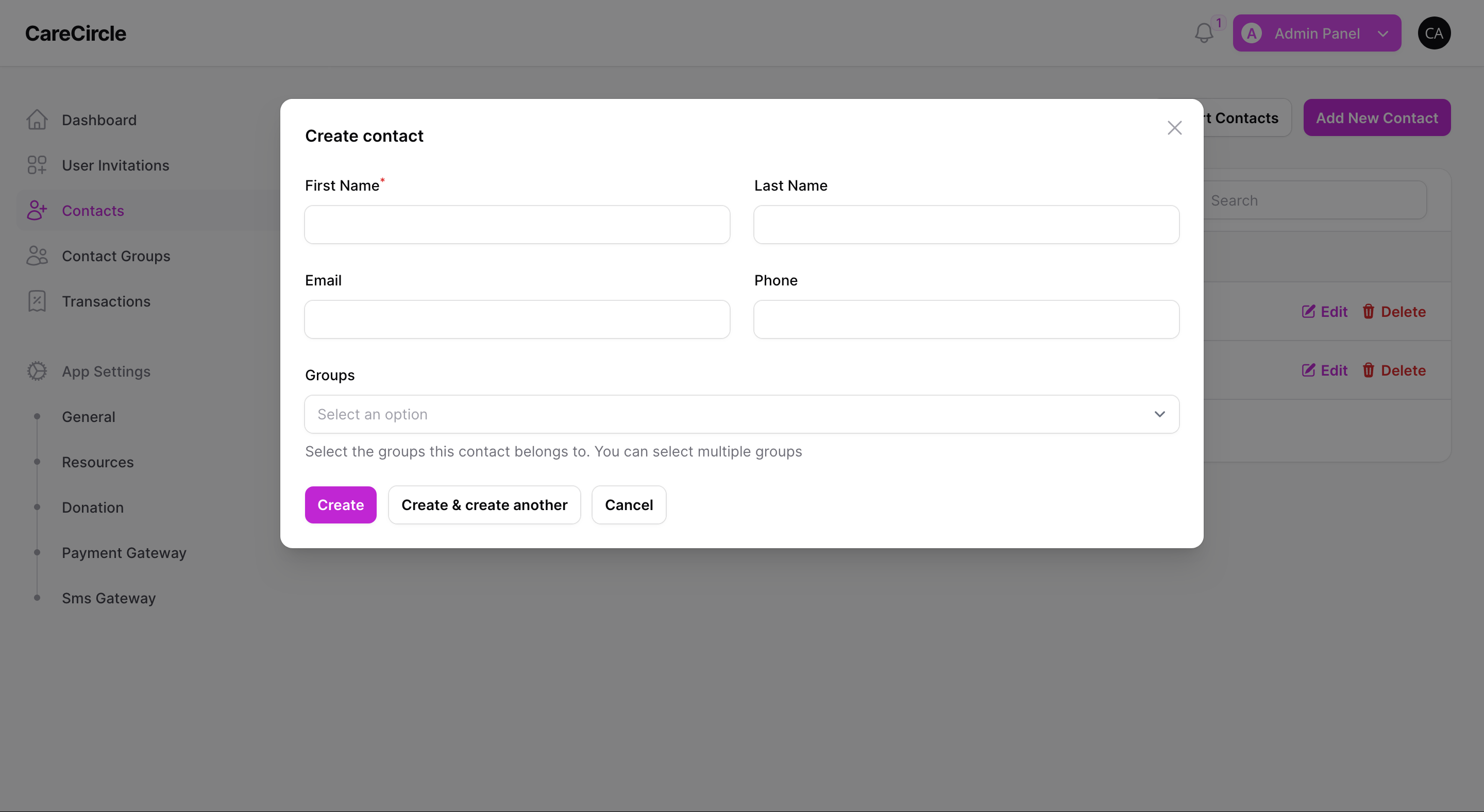
Generating URL Modal Pop-Ups within FilamentPHP Resource Pages
Learn to set up FilamentPHP, create a resource, define a modal actions, and how to generate urls to those actions from any part of your application
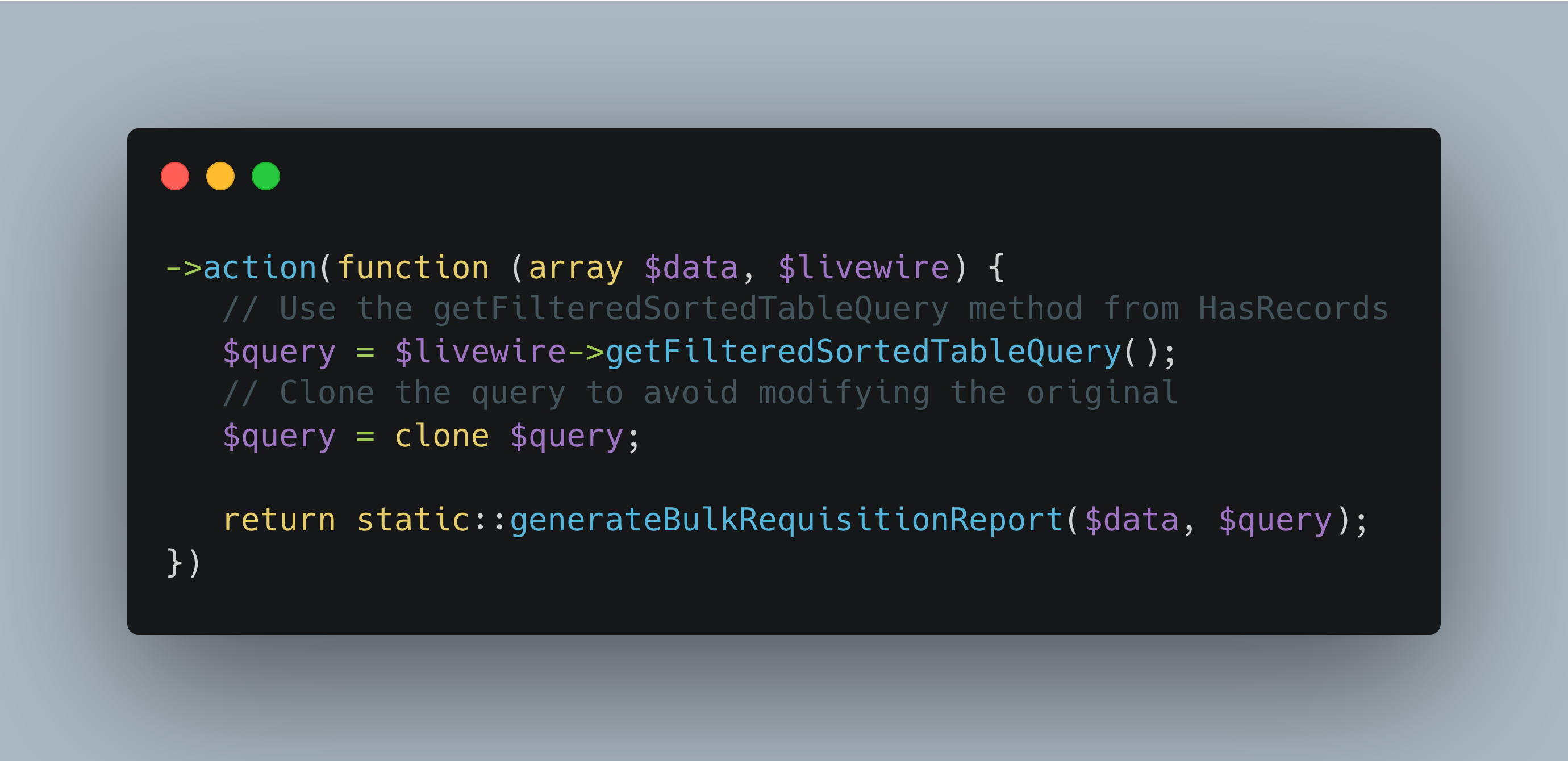
How to Dynamically Filter and Export Table Data in Filament
Learn how to extract, filter, and generate accurate reports from Filament tables with getFilteredSortedTableQuery(). No more manual filtering!
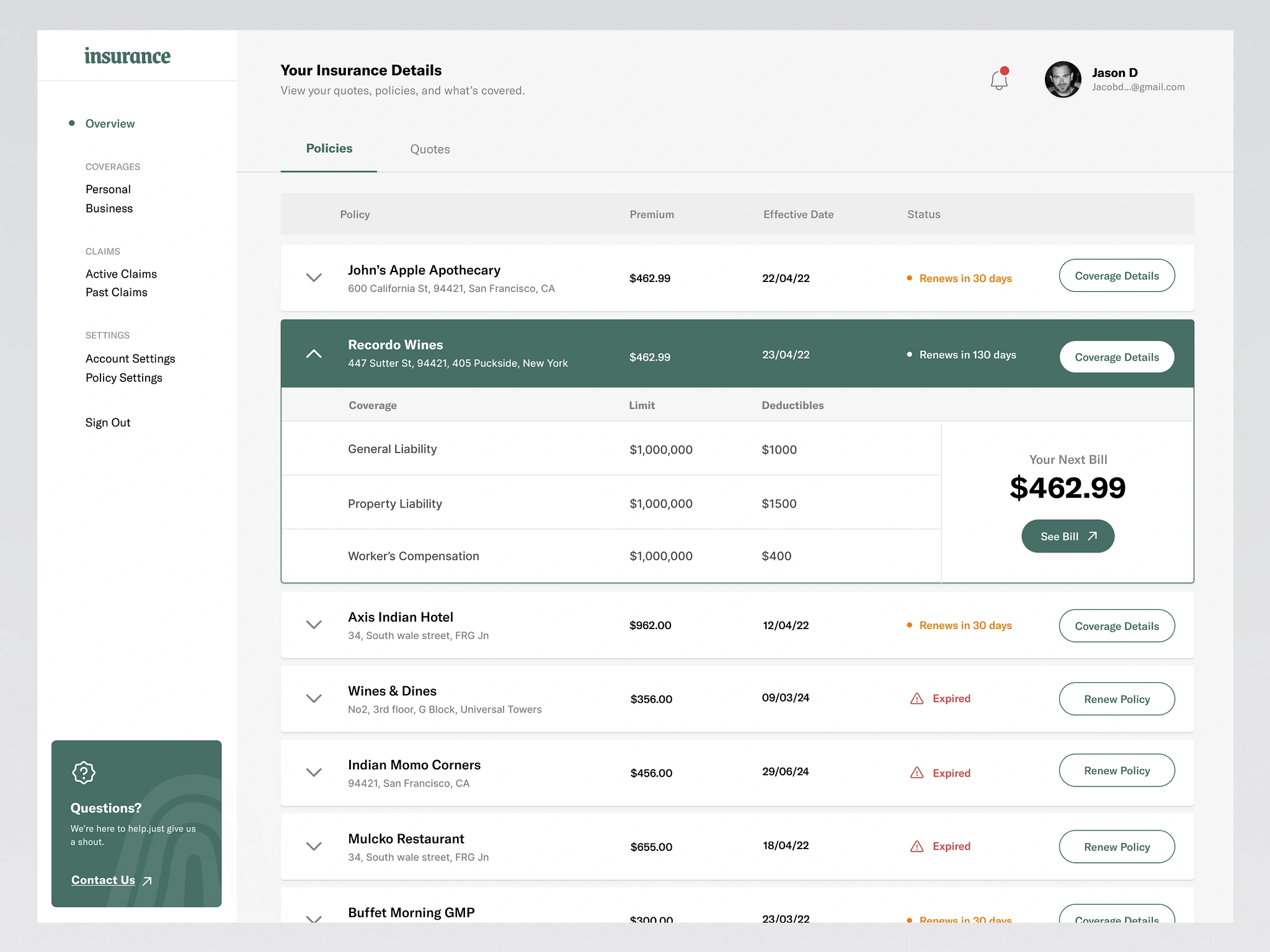
From Data Overload to Clarity: Why Your Business Needs a Custom Dashboard
Custom dashboards streamline decision-making with predictive analytics, interactive visuals, and smart alerts.

